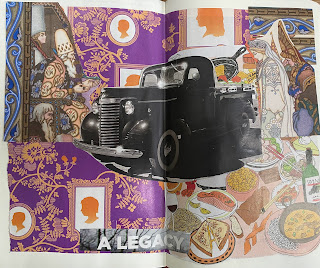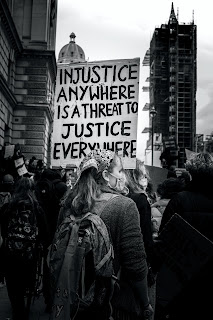Day 28 – Healing justice
Day 28 - I’m continuing to work my way through Piepzna-Samarasinha’s (2018) book Care work. In addition to discussing Disability Justice, she talks about Healing Justice in a way that offers those of us working as “therapists” something to really think about!
She describes Healing justice this way,
Healing justice as a movement and a term was created by queer and trans Black, Indigenous, and People of color, beginning with the work of Kindred Southern Healing Justice Collective in 2004, to define a movement of politicized Black and brown healers reclaiming our traditional methods of healing and redefine what healing and health could mean, especially in terms of dealing with intergenerational trauma. Of course before “healing justice” was a term, healers had been healing folks at kitchen tables and community clinics for a long time—from the acupuncture clinics run by Black Panthers like Mutulu Shakur in North America in the 1970s to our bone-deep Black, Indigenous, people of color and pre-christian European traditions of healing with herbs, acupuncture, touch, prayer, and surgery. As my mentor, intuitive healer Dori Midnight, says, “It’s nothing new to invite people into your home, give them some tea, listen to their grief, hold space for their pain, lay them down on cushions on the floor and pray with them or touch them or move energy and offer them remedies made from plants and stones.” (pp. 98-99)
Piepzna-Samarasinha notes that the Kindred Southern Healing Justice Collective worked diligently through multiple crisis but that after Hurricane Katrina found themselves needing to really reinforce the importance of care not just for those outside the movement but also for those within the movement as well!! Cara Page and the collective developed a “needs and strategies” statement,
“We need to be able to respond to the increased state of burnout and depression in our movements; systematic loss of our communities’ healing traditions; the isolation and stigmatization of healers; and the increased privatization of our land, medicine and natural resources that has caused us to rely on state or private models we do not trust and that do not serve us.” (Kindred Southern Healing Justice Collective as cited by Piepzna-Samarasinha, 2018, p. 100)
This led to quite a reverie on my part about the differences between “healing” and “therapy” and between indigenous practices and state or private medicalized practice.
This whole section of Piepzna-Samarasinha’s book asks us to think about ableist views of sickness, illness, disability, and wellness. She goes on to say,
Mainstream ideas of “healing” deeply believe in ableist ideas that you’re either sick or well, fixed or broken, and that nobody would want to be in a disabled or sick or mad bodymind. Unsurprisingly and unfortunately, these ableist ideas often carry over into healing spaces that call themselves “alternative” or “liberatory.” The healing may be acupuncture and herbs, not pills and surgery, but assumptions in both places abound that disabled and sick folks are sad people longing to be “normal,” that cure is always the goal, and that disabled people are objects who have no knowledge of our bodies. And deep in both the medical-industrial complex and “alternative” forms of healing that have not confronted their ableism is the idea that disabled people can’t be healers. (p. 103)
I’ll end today with this note,
I believe healing justice must centralize anti-ableism as a central tenet of the work we do, centering crip ideas of what illness and disability are, as well as honoring disabled and sick and mad people’s autonomy and wisdom, and centralizing accessibility in a broad sense (from wheelchair access to fragrance access to ASL presence) as a central part of how we heal, not an add-on or an afterthought. (p. 104)
A lot to digest!!!
Piepzna-Samarasinha, L. L. (2018). Care work: Dreaming disability justice. Arsenal Pulp Press. Kindle Edition.




Comments